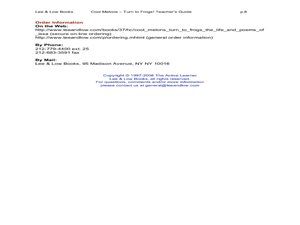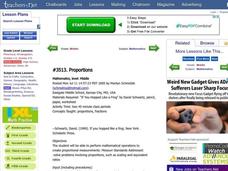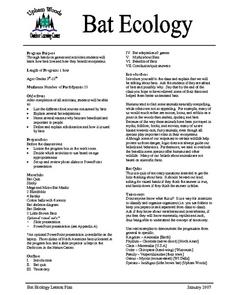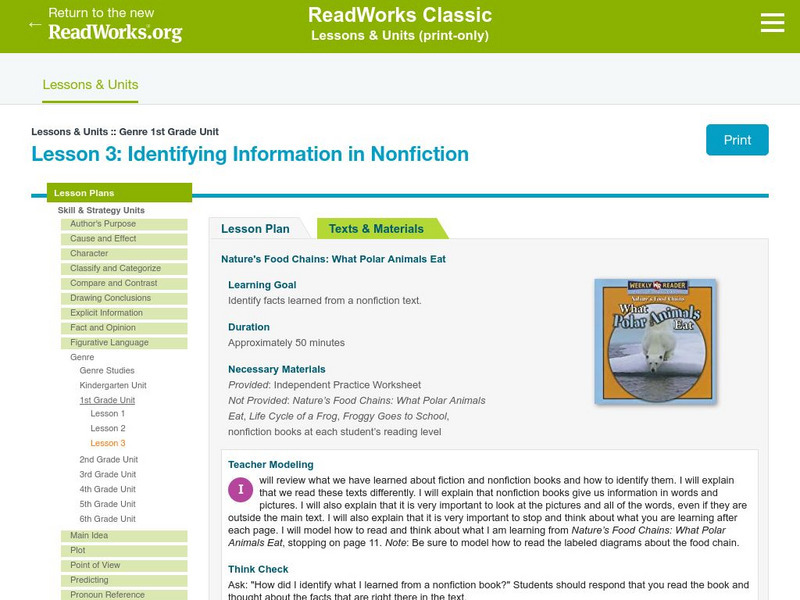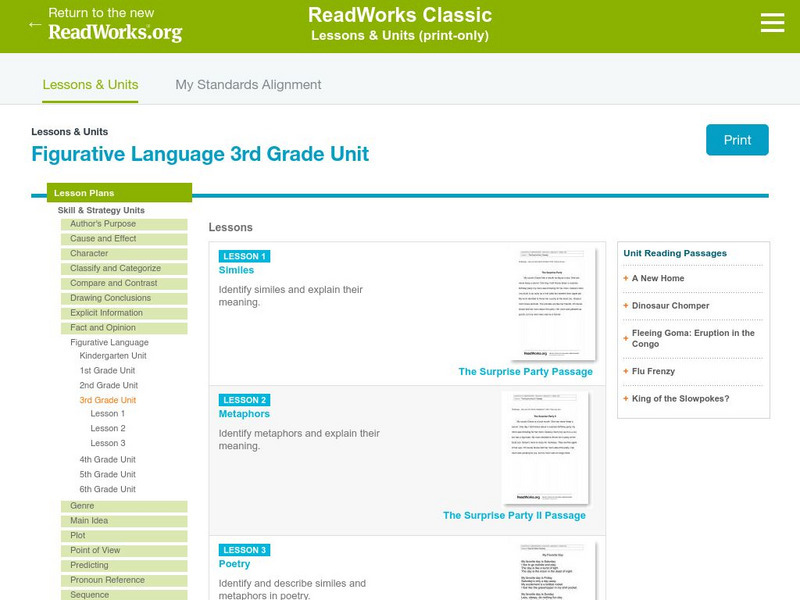Apple State University
Friendly Letter Mini-Lesson
This mini-lesson about informal letter writing is packed with a lot of information about writing a friendly letter. Class members begin by working in pairs to answer questions after reviewing letter models. Then, take part in a grand...
National Science Teachers Association
Hop into Action
Young scientists find out what makes amphibians such unique and interesting animals in this simple life science lesson. After looking at pictures and discussing the characteristics of amphibians, learners complete a series of three Venn...
Curated OER
The Magical World of Russian Fairy Tales
Students read several fairy tales of Russian origin. They brainstorm common elements of a fairy tale and identify those elements in several examples. They retell a favorite fairy tale through a skit, oral storytelling, a sketch, or a...
Curated OER
Segmenting and Blending with Word Families
Students sound out CVC words. In this literacy lesson, the teacher guides students through the process of sounding out three-letter words with a as the middle vowel using both repetition and movement. Then students complete a worksheet.
Curated OER
Scientists Breed See-Through Frogs
Students participate in a pre-reading activity, then read a news article about the breeding of transparent frogs. In this biology and current events instructional activity, the teacher introduces the article with a question and a...
Curated OER
Scientists Discover Giant Frog Fossil
Students examine a world map and read a news article about the discovery of a giant frog fossil. In this earth science and current event lesson, the teacher introduces an article with a discussion about continental drift and a vocabulary...
Curated OER
Cool Melons Turn to Frogs
Third graders become familiar with the poetry of Issa. In this haiku lesson, 3rd graders recognize the format of a haiku and learn about the life of Issa (the poet) through focused questions, vocabulary and reading responses. Students...
Curated OER
Proportions
Students perform mathematical operations to create proportional measurements, after listening to the David Schwartz book, If You Hopped Like a Frog.
Curated OER
Bat Ecology
Students, through hands on games and activities, discover how bats live and how bats benefit ecosystems. They play a game designed to show them how echolocation works and another to show how mother bats locate their young through their...
Read Works
Read Works: 1st Grade Lesson: Purposes for Reading
[Free Registration/Login Required] A lesson in which students use the books Nature's Food Chains: What Polar Animals Eat by Joanne Mattern, Life Cycle of a Frog by Angela Royston, and Froggy Goes to School by Jonathan London to learn to...
Read Works
Read Works: 1st Grade Lesson: Classifying Texts
[Free Registration/Login Required] A lesson in which young scholars use the books Froggy Goes to School by Jonathan London and Life Cycle of a Frog by Angela Royston to learn to classify texts as fiction or nonfiction. Lesson includes...
Read Works
Read Works: Genre 1st Grade Unit: Identifying Information in Nonfiction
[Free Registration/Login Required] A lesson in which students use the books Nature's Food Chains: What Polar Animals Eat by Joanne Mattern, Life Cycle of a Frog by Angela Royston, and Froggy Goes to School by Jonathan London to learn to...
Read Works
Read Works: Figurative Language 3rd Grade Unit
[Free Registration/Login Required] In this three-lesson unit, students use the book If You Hopped Like a Frog by David Schwartz and some additional short texts to learn to identify and understand the use of simile and metaphor in fiction...
Read Works
Read Works: 3rd Grade Lesson: Metaphors
[Free Registration/Login Required] A lesson in which young scholars use the book If You Hopped Like a Frog by David M. Schwartz and an additional short text to learn to identify and understand the use of metaphor in fiction. Lesson...








